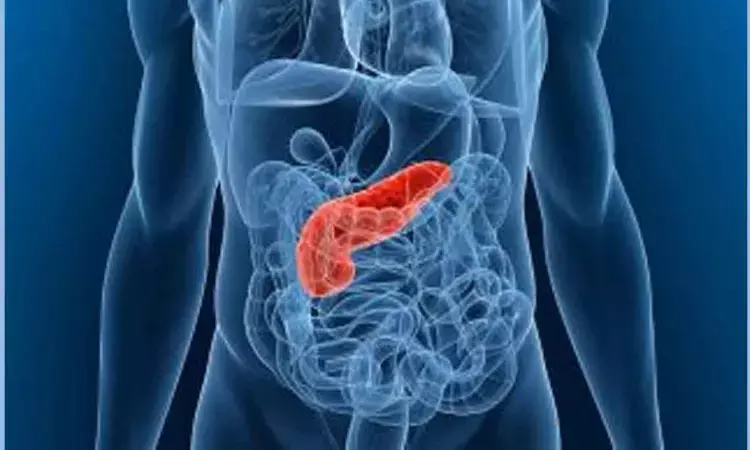- Home
- Medical news & Guidelines
- Anesthesiology
- Cardiology and CTVS
- Critical Care
- Dentistry
- Dermatology
- Diabetes and Endocrinology
- ENT
- Gastroenterology
- Medicine
- Nephrology
- Neurology
- Obstretics-Gynaecology
- Oncology
- Ophthalmology
- Orthopaedics
- Pediatrics-Neonatology
- Psychiatry
- Pulmonology
- Radiology
- Surgery
- Urology
- Laboratory Medicine
- Diet
- Nursing
- Paramedical
- Physiotherapy
- Health news
- Fact Check
- Bone Health Fact Check
- Brain Health Fact Check
- Cancer Related Fact Check
- Child Care Fact Check
- Dental and oral health fact check
- Diabetes and metabolic health fact check
- Diet and Nutrition Fact Check
- Eye and ENT Care Fact Check
- Fitness fact check
- Gut health fact check
- Heart health fact check
- Kidney health fact check
- Medical education fact check
- Men's health fact check
- Respiratory fact check
- Skin and hair care fact check
- Vaccine and Immunization fact check
- Women's health fact check
- AYUSH
- State News
- Andaman and Nicobar Islands
- Andhra Pradesh
- Arunachal Pradesh
- Assam
- Bihar
- Chandigarh
- Chattisgarh
- Dadra and Nagar Haveli
- Daman and Diu
- Delhi
- Goa
- Gujarat
- Haryana
- Himachal Pradesh
- Jammu & Kashmir
- Jharkhand
- Karnataka
- Kerala
- Ladakh
- Lakshadweep
- Madhya Pradesh
- Maharashtra
- Manipur
- Meghalaya
- Mizoram
- Nagaland
- Odisha
- Puducherry
- Punjab
- Rajasthan
- Sikkim
- Tamil Nadu
- Telangana
- Tripura
- Uttar Pradesh
- Uttrakhand
- West Bengal
- Medical Education
- Industry
Women with polycystic ovary syndrome at higher risk of pancreatic cancer: JAMA

New York: Compared to women without polycystic ovary syndrome (PCOS), those with a history of PCOS are at twice the risk of developing pancreatic cancer later in life, a recent study in JAMA Oncology has revealed.
It is known that only 11% of pancreatic cancer survive five years after diagnosis; given this, clinical surveillance is recommended for people at high risk. There are relatively few established risk factors for pancreatic cancer, knowledge of these can help detect other subgroups of individuals who may get help from increased education and clinical vigilance.
The researchers note that while millions of women have PCOS, pancreatic cancer remains a rare disease, with around 62,000 diagnoses of cases every year — about half of them in women.
PCOS is a common endocrine disorder that affects 1 in 10 women of childbearing age; it is linked with various carcinogenic processes and cancers. A 2019 Swedish register study showed that women with PCOS are at 3.4-fold higher risk of pancreatic cancer, but it had only five women with pancreatic cancer had PCOS, which was not adequate to draw a firm conclusion. Noah C. Peeri, Memorial Sloan Kettering Cancer Center, New York, New York, and colleagues sought to confirm this exploratory finding; by studying a much larger group of people. The analysis included 446 women with confirmed pancreatic adenocarcinoma and 209 controls.
The study led to the following findings:
- Women reporting a history of PCOS were more likely to have pancreatic cancer than controls, even after adjusting for age, race, ethnicity, body mass index, and estrogen use.
- The association between PCOS and pancreatic cancer was somewhat reduced after taking into account type 2 diabetes presence (OR=1.78) but was not driven by it.
"The results indicate that these women may have unknown metabolic disorders that contribute to the development of both conditions," the authors stated. "Given the low percentage of patients with pancreatic cancer who survive beyond five years after diagnosis, women with PCOS diagnosis should have more clinical vigilance and education regarding pancreatic cancer."
If PCOS is proven to be a marker for increased risk of pancreatic cancer, it could imply that women with PCOS may get help from increased surveillance for pancreatic cancer. Currently, there is no widespread surveillance for pancreatic cancer as studies are still being conducted to assess if there is a benefit. But some high-risk people are encouraged to be more vigilant in disease screening.
Reference:
Peeri NC, Landicino MV, Saldia CA, Kurtz RC, Rolston VS, Du M. Association Between Polycystic Ovary Syndrome and Risk of Pancreatic Cancer. JAMA Oncol. Published online October 06, 2022. doi:10.1001/jamaoncol.2022.4540
Dr Kamal Kant Kohli-MBBS, DTCD- a chest specialist with more than 30 years of practice and a flair for writing clinical articles, Dr Kamal Kant Kohli joined Medical Dialogues as a Chief Editor of Medical News. Besides writing articles, as an editor, he proofreads and verifies all the medical content published on Medical Dialogues including those coming from journals, studies,medical conferences,guidelines etc. Email: drkohli@medicaldialogues.in. Contact no. 011-43720751


